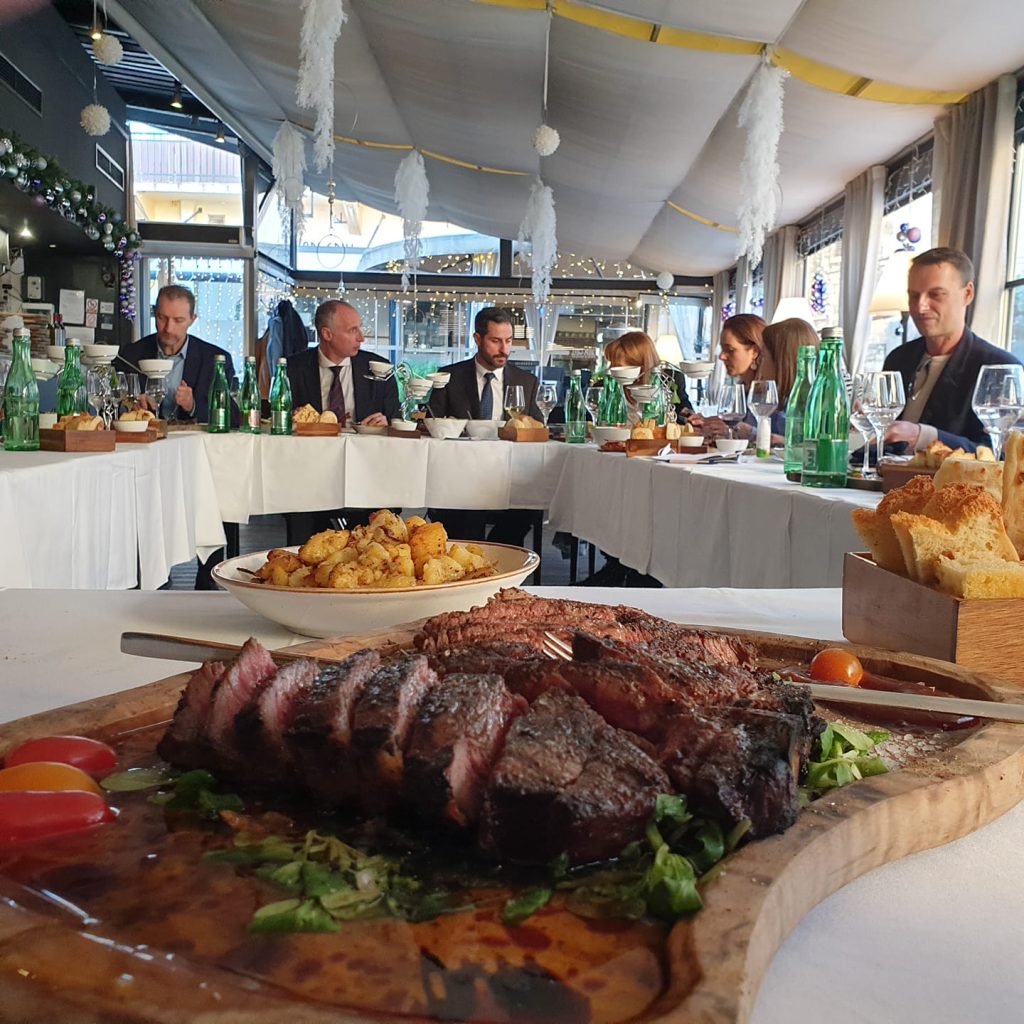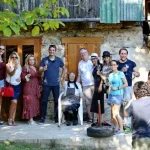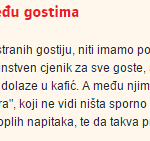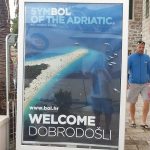As I looked above the excellent steak that was served for lunch after the TCN Split Winter Tourism Roundtable, I smiled (see photo above). For opposite me, at the other side of our rectangular roundtable, were perhaps the four public officials who could have the most influence in helping the initiative to extend the Split tourist season to succeed.
And I had history with all four.
Central Dalmatia Tourist Board Director Josko Stella actually gave me my first job in 12 years back in 2013 (after more than a decade of being self-employed) when he invited me to become the official Central Dalmatian Tourist Board blogger, a position I held for 7 happy years. It is something I will always remember with gratitude.
Next to him, Mayor of Split Ivica Puljak, who I first met with his wife, MP Marijana Puljak, over a coffee in Jelsa in 2018, as they wanted to show support for me after the Mayor of Jelsa announced he was suing me (he never did). And it was Marijana who stood up in Parliament last year to raise my case of the SLAPP lawsuit by the Croatian National Tourist Board last year.
Next to him, State Secretary of the Ministry of Tourism and Sports, Tonci Glavina, a man with Klis running through his veins, whose lovely wife Tracey was the first-ever writer for TCN back in 2015.
And next to Tonci, Split Tourist Board Director Alijana Vuksic, who has been supporting firstly Total Split, and then TCN, since 2014.
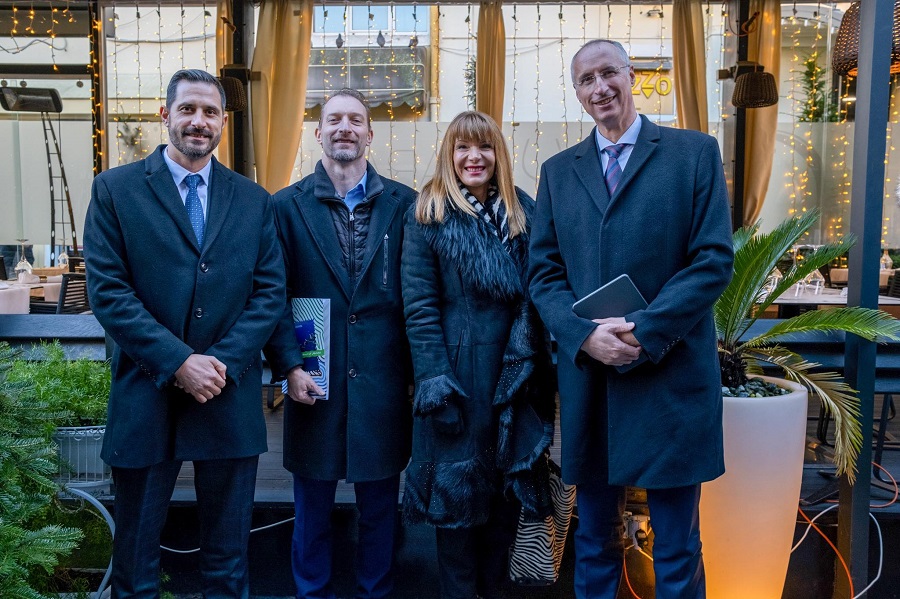
(Four key figures from the public sector – Tonci Glavina, Josko Stella, Alijana Vuksic, and Ivica Puljak)
To their left and to their right, additional figures from the public sector in the form of the Croatian Chamber of Commerce, county representative, and the Deputy Director of Split Airport, as well as some of the most important names from the private sector – GMs from 5-star hotels, tourism consultants, and representatives from the MICE, hotels, hostels and restaurant sectors.
They all came. Everyone who was invited.
And they all – without exception – left their egos and agendas at home, came to listen, then to speak, and then to engage. I won’t pretend that it was straightforward to get everyone to the table, because it wasn’t, but it will be a lot easier next time, because everyone left pleasantly surprised at how constructive the session was. And I think everyone left with a feeling that here was a very real chance of developing something concrete, meaningful and lasting.
While I am by no means a tourism expert, one man who is is Zoran Pejovic of Paradox Hospitality, whose contributions were poignant (and we are all very excited to learn more about the 200 million euro investment he is bringing to the Central Dalmatia region). This is what he posted on LinkedIn after our meeting:
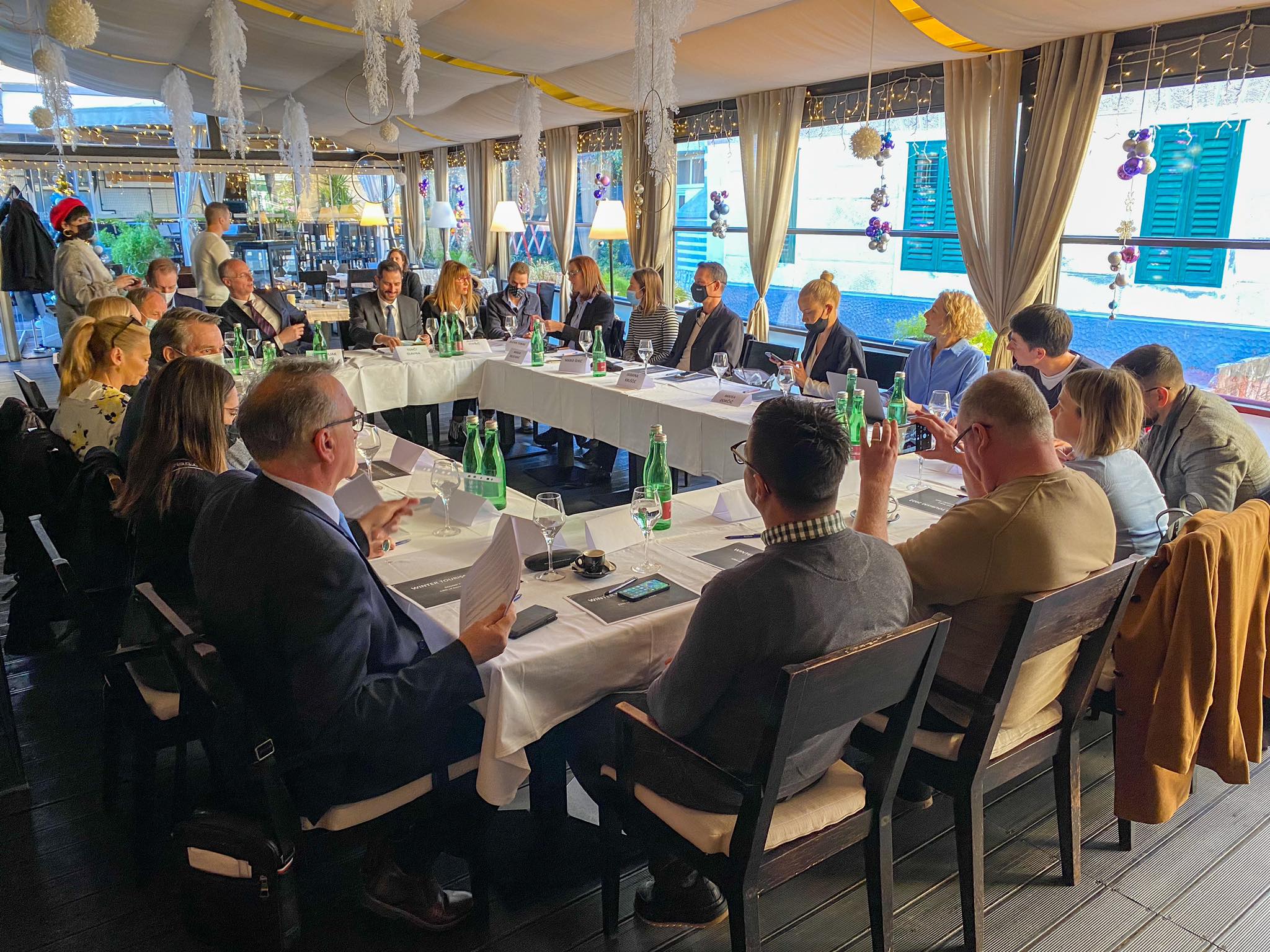
Yesterday morning I had looked at my super packed schedule for the day and for a brief moment contemplated calling Paul Bradbury to inform him that I can’t make it to his “round table” discussion on the topic of Split tourism and its shoulder and off-season activities, promotions and most importantly connectivity. That would have been a mistake.
No, we didn’t solve all of Split and Dalmatia’s low-season tourism challenges. However, we had a very substantiated and civilized discussion with some of the stakeholders exchanging contacts for the first time and most of the participants exchanging thoughts and ideas in this format for the very first time. We had Mayor of Split, Ivica Puljak at the head of the table, together with the State Secretary in the Ministry of Tourism, Tonči Glavina. We had representatives of Split hotels, hostels, restaurants associations, DMCs as well as heads of Split Airport, Tourism Boards and Chamber of Commerce. And I was there, and I am happy to have been there.
Perhaps I had such low expectations of this round table that it was not difficult to exceed it, but this was so well organized by Paul Bradbury and Daniela Rogulj, so well moderated by Michael Freer, so well hosted by Jasmina Garbin that I have left feeling that there is yet hope for us in creating a better and more thought-through tourism in Dalmatia.
Now, a couple of comments from my side. I believe that the job of building better and more diversified tourism products and promotion of the destination rests on the shoulders of the private sector, not the public officials and the governments. That said, we need public offices to provide better infrastructure where possible and to reduce the tax burdens when possible, in order to make us more competitive with our Mediterranean competitors. Also, we all need to understand that we will not be having a lack of travellers moving forward, but the lack of workers and if this is not addressed structurally we will have nothing to discuss in the future. We need tips for the service personnel to be non-taxed until certain limits, capping it at around 700 euros a month. We finally need to start developing proper hospitality managers, from Hotel General Managers and Sales and Marketing Directors to operations executives and to make this industry desirable once again. And lastly for this post, lastly only because of LinkedIn post character limit :), we need to make a strong push for excellence and within that make no concessions on the road to more responsible hospitality and tourism.
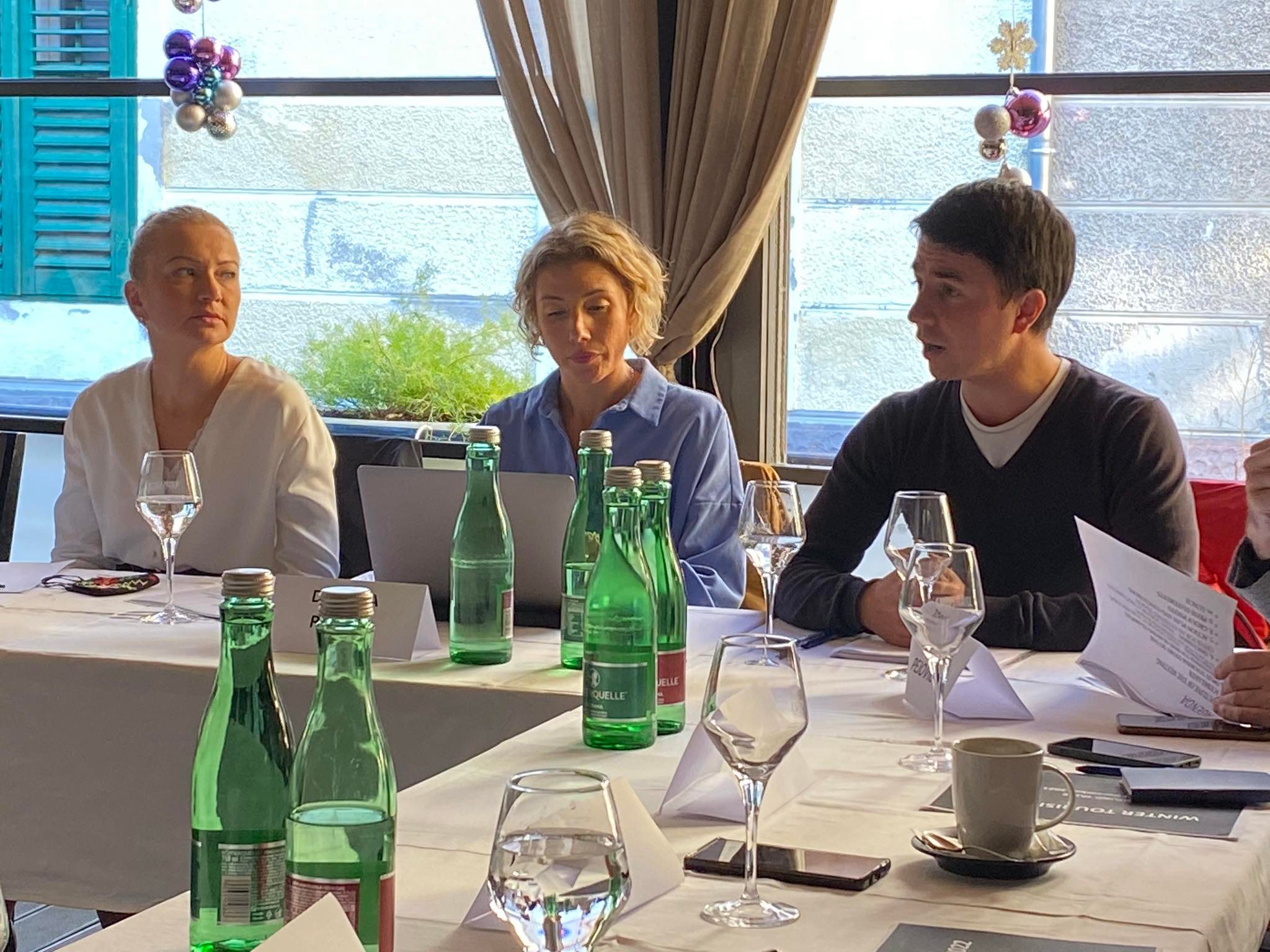
(Three stars – Jamina Kruscic, CHOPS Grill hostess, Daniela Rogulj of TCN, and moderator Michael Freer)
You can read the minutes of the meeting here, as well as the proposed action plan to get to the next level – many thanks to Daniela Rogulj for the huge amount of work that this entailed.
Here were some of my key takeaways:
1. The amount of knowledge, experience, connections, and ability in that room was frightening. As was the realisation of how disconnected it was. When Zoran casually mentioned that he was bringing 200 million euro of investment to Central Dalmatia, I smiled. It has come a few minutes after Ante Lacman bemoaned the inability of Split to heed simple requests to close a road, so that a 7-figure (euro) car launch could take place in Split. So many people dealing with so many big numbers, with no coordination with the other stakeholders. As I drove to Zadar, Zagreb and finally Osijek the next day, the very thought of being able to have a coordinated approach with all those stakeholders singing from the same hymn sheet would transform everything.
2. The engagement of Mayor Puljak and his desire to learn was impressive. It is no secret that tourism is not his strongest card, but I left with the feeling that he too wanted to unblock some of the roadblocks we are encountering.
3. The comment of consultant Mario Seric gave me additional reason to dare to dream of a good end result. Mario is a veteran of a 2008-9 initiative to bring winter flights to Split (and with some success – one of its legacies is the Split to Munich year-round flight). He agreed to give a presentation on the lessons learned from 2009 (and did so superbly), but I know that he – like Zoran – had zero expectations from the roundtable, and he was probably only there as a favour to me. Mario’s conclusion that if he had had Josko, Ivica, Tonci and Alijana as the public officials to deal with back in 2009, there would probably have been a different outcome.
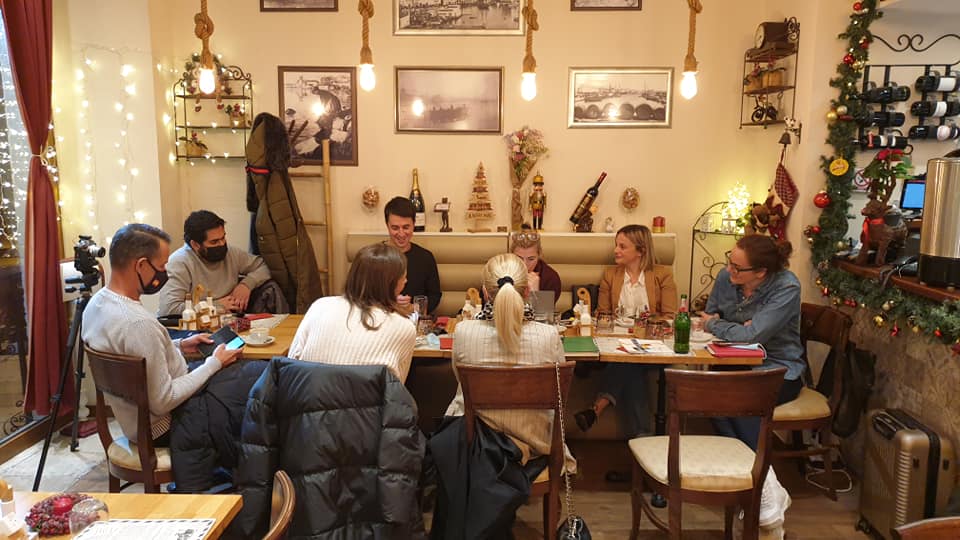
(One of the many meetings before the roundtable)
4. Pero from Split Airport was a total star, and a very transparent one. Split Airport has always been a mystery to me, and I have never met any official from there, but his openness and engagement with everyone helped to break down barriers and misconceptions, and we all left with a greater understanding of why things are the way they are, and how we can slowly effect change with a longer season of flights.
5. One thing I have learned in 2021 is that even though Croatia is a very bureaucratic country, effective public-private partnership IS possible in Croatia. Not all public institutions are as ineffective and irrelevant as the Croatian National Tourist Board, and the award-winning partnerships of Saltwater Nomads, Total Croatia News and firstly Zagreb Tourist Board, but also the City of Dubrovnik and Dubrovnik Tourist Board with Zagreb Digital Nomad Week & Ambassador Program and Dubrovnik Digital Nomads-in-Residence Program show how impactful those public-private partnerships can be when focused on a common goal. I left the roundtable with the feeling that there is now an opportunity to build on the energy of Monday’s meeting to create something similar with the stakeholders from the roundtable.
6. Split, Central Dalmatia, or probably Dalmatia itself has a branding problem. Istria does things so much better, but I don’t believe the core quality of the raw product is any better in Istria than in Dalmatia. Dalmatia needs to be branded properly, things need to be proactive rather than reactive. With consultants such as Mario Seric and Zoran Pejovic already stakeholders in this initiative, why not engage them to use their expertise and contacts to brand Dalmatia properly once and for all?
7. We have the right stakeholders at the table. What I really enjoyed about this whole process was seeing it come together and seeing how various stakeholders understand the limitations and possibilities of the other side. State Secretary Glavina has experience in the private sector, our charming hostess Jasmina Kruscic was once a tourist board director, and Jelena Tabak, a restaurant owner and Head of the Split Caterers Association navigates the waters expertly. So many of the stakeholders were meeting for the first time, or at least exchanging ideas for the first time. More meetings like Monday (and the next one is planned for next month) will build trust, confidence, brainstorming – and ultimately results.
8. CHOPS Grill really is the best meat restaurant in Dalmatia, and a fantastic and hospitable venue for such an event. Thank you, Jasmina, for your generous support.
Real progress was made, and I am very heartened by everything that happened on Monday. Special thanks to the incredible quartet of ladies who were the real stars of all this – Jelena from CHOPS, Mare from B7, Dani from TCN, and Jelena from Dujkin Dvor. When they put together the Wikipedia page of how Split built its winter tourism, this photo below will be the lead shot.
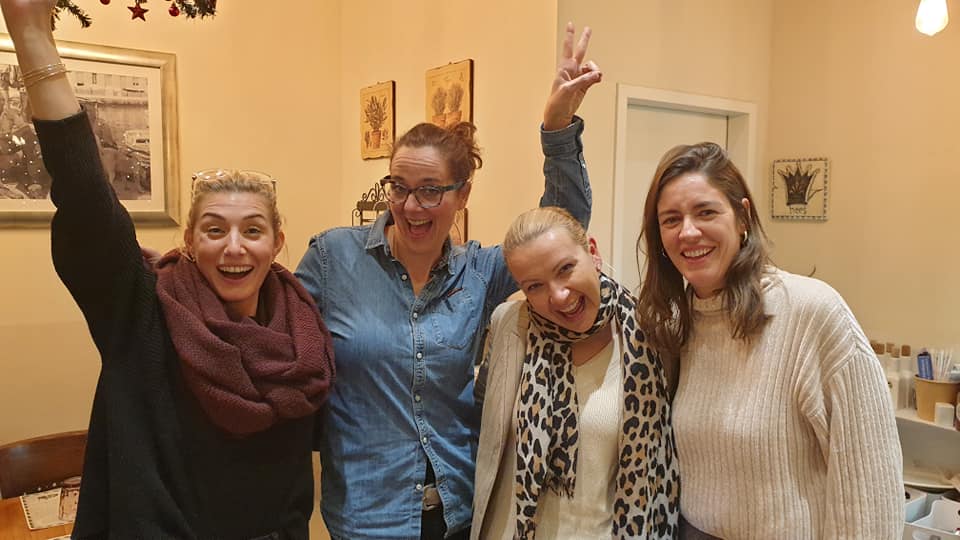
And a big thank you to Michael Freer, whose moderation and facilitation played a huge part in getting us this far. I look forward to meeting – and reporting – again next month.
To be continued…

